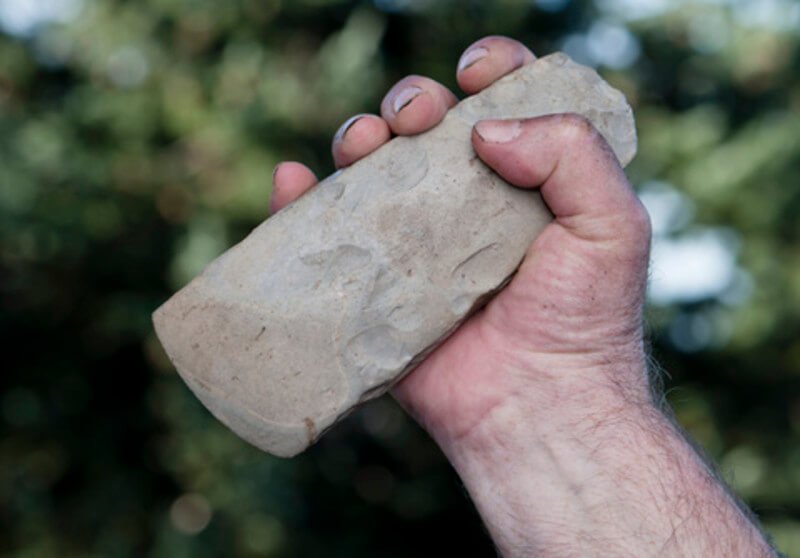Human self-control evolved in our early ancestors, becoming particularly evident around 500,000 years ago when they developed the skills to make sophisticated tools, a new study suggests.
While early hominins such as Homo erectus could craft basic handaxes as early as 1.8 million years ago, our hominin ancestors began to create more elaborate and carefully designed versions of these tools sometime before 500,000 years ago.
The authors of the study, from the University of York, say these advances in craftsmanship suggest individuals at this time possessed characteristics which demonstrate significant self-control, such as concentration and frustration tolerance.
The study highlights a collection of 500,000 year-old flint axes unearthed from a gravel quarry in the village of Boxgrove in West Sussex. The axes are highly symmetrical suggesting careful workmanship and the forgoing of immediate needs for longer term aims.
…
“In the present day our capacity for self-control has become particularly important. Without the advanced levels of self-control we possess as a species, lockdown would be impossible. It takes self-control to put the needs of the community first rather than focus on our own immediate ends. Our study offers some clues as to where in human history this ability originated,” [said researcher Penny Spikins.]
Read the original post































